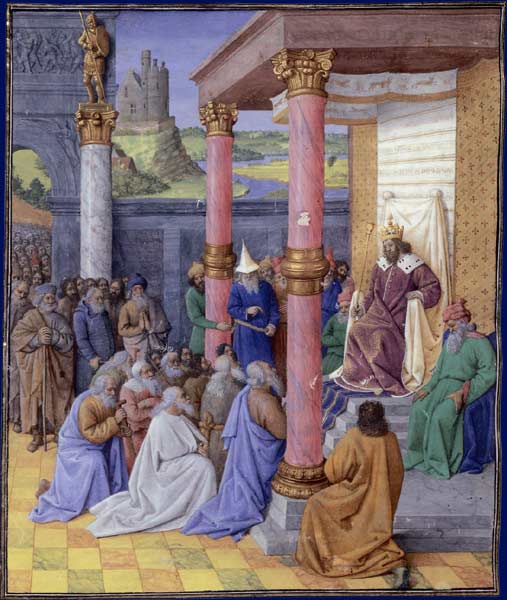Cyrus II of Persia (c. 600 or 576 – 530 BC), commonly known as Cyrus the Great and also known as Cyrus the Elder, was the founder of the Achaemenid Empire. Under his rule, the empire embraced all the previous civilized states of the ancient Near East, expanded vastly and eventually conquered most of Southwest Asia and much of Central Asia and the Caucasus. From the Mediterranean Sea and Hellespont in the west to the Indus River in the east, Cyrus the Great created the largest empire the world had yet seen. Under his successors, the empire eventually stretched from parts of the Balkans (Bulgaria-Pannonia) and Thrace-Macedonia in the west, to the Indus Valley in the east. His regal titles in full were The Great King, King of Persia, King of Anshan, King of Media, King of Babylon, King of Sumer and Akkad, and King of the Four Corners of the World. In the 1970s, the Shah of Iran Mohammad Reza Pahlavi identified his famous proclamation inscribed onto Cyrus Cylinder as the oldest known declaration of human rights, and the Cylinder has since been popularized as such. This view has been criticized by some historians as a misunderstanding of the Cylinder's generic nature as a traditional statement that new monarchs make at the beginning of their reign.
The reign of Cyrus the Great lasted between 29 and 31 years. Cyrus built his empire by conquering first the Median Empire, then the Lydian Empire and eventually the Neo-Babylonian Empire. Either before or after Babylon, he led an expedition into central Asia, which resulted in major campaigns that were described as having brought "into subjection every nation without exception". Cyrus did not venture into Egypt, as he himself died in battle, fighting the Massagetae along the Sir Darya in December 530 BC. He was succeeded by his son, Cambyses II, who managed to add to the empire by conquering Egypt, Nubia, and Cyrenaica during his short rule.
Cyrus the Great respected the customs and religions of the lands he conquered. It is said that in universal history, the role of the Achaemenid Empire founded by Cyrus lies in its very successful model for centralized administration and establishing a government working to the advantage and profit of its subjects. In fact, the administration of the empire through satraps and the vital principle of forming a government at Pasargadae were the works of Cyrus.
Cyrus the Great is also well recognized for his achievements in human rights, politics, and military strategy, as well as his influence on both Eastern and Western civilizations. Having originated from Persis, roughly corresponding to the modern Iranian province of Fars, Cyrus has played a crucial role in defining the national identity of modern Iran. Cyrus and, indeed, the Achaemenid influence in the ancient world also extended as far as Athens, where many Athenians adopted aspects of the Achaemenid Medo-Persian culture as their own, in a reciprocal cultural exchange.
The reign of Cyrus the Great lasted between 29 and 31 years. Cyrus built his empire by conquering first the Median Empire, then the Lydian Empire and eventually the Neo-Babylonian Empire. Either before or after Babylon, he led an expedition into central Asia, which resulted in major campaigns that were described as having brought "into subjection every nation without exception". Cyrus did not venture into Egypt, as he himself died in battle, fighting the Massagetae along the Sir Darya in December 530 BC. He was succeeded by his son, Cambyses II, who managed to add to the empire by conquering Egypt, Nubia, and Cyrenaica during his short rule.
Cyrus the Great respected the customs and religions of the lands he conquered. It is said that in universal history, the role of the Achaemenid Empire founded by Cyrus lies in its very successful model for centralized administration and establishing a government working to the advantage and profit of its subjects. In fact, the administration of the empire through satraps and the vital principle of forming a government at Pasargadae were the works of Cyrus.
Cyrus the Great is also well recognized for his achievements in human rights, politics, and military strategy, as well as his influence on both Eastern and Western civilizations. Having originated from Persis, roughly corresponding to the modern Iranian province of Fars, Cyrus has played a crucial role in defining the national identity of modern Iran. Cyrus and, indeed, the Achaemenid influence in the ancient world also extended as far as Athens, where many Athenians adopted aspects of the Achaemenid Medo-Persian culture as their own, in a reciprocal cultural exchange.


0 comments:
Post a Comment